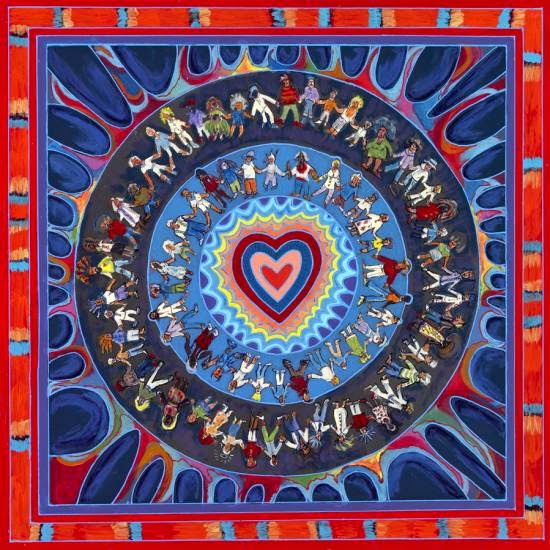
A Quaker can be a pacifist on the basis of his religion.
Maybe a Christian can too “Turn the other cheek.” Jews and Muslims can not be. It is quite clear that our scriptural and
legal traditions view violence as a reasonable and often unavoidable means of resolving human conflict. Both
traditions set limits on who you may hurt, when you may hurt and the conditions
under which you can hurt them. Both
traditions are very realistic about recognizing the ugliness that violence
raises in its participants, the possible abuses that place in time of war. Both
traditions strive to manage that. They
create limited room for dividing the spoils (which in ancient times certainly
included humans as property) and for the harm of non-combatants who happen to
be in the way. Judaism and Islam both
decry the intentional attack on innocents and the wanton destruction of
property. We are not pacifist religions
in principle. In practice though, I wonder however whether the nature of
violence in the modern age, may not call us to be pacifists, in practice.
The scriptures, narratives, examples and legal precedents upon which both
Jewish and Islamic legal traditions base their rulings on war and violence are
largely ancient and medieval and nature.
They speak of a time of relatively
small scale warfare. Armies lined up
against other armies or perhaps small groups of insurgents fought guerilla wars
with larger armies. Combatants were clear and well-defined. Weapons were smaller. There were stones, knives,
hatchets, swords, bows, long-bows, cross
bows and eventually cannon and muskets. These
short range weapons required a virtual face to face engagement with the
enemy. Even in the heat of battle, it
would be hard to forget the humanity of your opponent. Though tragic, such wars
were necessarily limited in scope and damage. They were wars that could be won.
Territory could be conquered and successfully held. In one to one engagement with the enemy, the
killing of non-combatants was certainly possibly but not likely. Commanders fought at the head of their
troops. When those in power face the
same imminent danger as their troops, it can create powerful incentives to make
peace (or accept submission).
In modern warfare, we move further and
further from face to face engagement. The incentives for peace are largely gone.
The war makers are in boardrooms far removed from their battlefields. Aerial
bombings and the use of unmanned drones alienate even the soldier from the heat
of battle, reducing the enemy to pixels on a screen. The drone soldier who prowls the plains of
Afghanistan for his targets from the air-conditioned comfort of Las Vegas knows
nothing of the ancient “nobility” of war or has any reason to avoid its
savagery . Big powerful weapons from
assault rifles to cluster bombs make “collateral damage” the killing of
innocents and absolute certainty. As
human beings crowd themselves into denser and denser population centers, war
begins to look more and more like shooting rats in a barrel. Collective
punishment also becomes a certainty. Nuclear and biological weapons make the
wanton destruction of environment an inevitable consequence of pulling those
triggers. There is little face-too-face engagement to humanize the enemy. The
horrors of war make less impression on minds and hearts awash in endless
dramatized violence.
The limitations that our religious traditions put on the practice of violence
have effectively become meaningless today. If war was ever noble, it can’t be
now. Jews carry the image of the
God-commanded struggle to conquer The Land in the time of Joshua. Muslims see
the glory days of Islamic expansion, the violent struggles of the early Muslim
community. Americans fantasize about the
conquering of the West, the brave cowboy.
I have come to believe that
F-16s, drones, assault rifles, bunker-busters, cluster bombs,
phosphorous weapons, and biological weapons have rendered all of that a quaint
fantasy. The goals and values that our
religions teach us can no longer be furthered by modern war.
If the facts on the ground make the limitation on violence
an impossibility, we have two possibilities;
to obliterate those limitations or to embrace some kind of collective
practical pacifism. The movement has clearly been to do the former. The definition of non-combatant becomes more
and more narrow. Scholars will find reasons to consider children and women as
“legitimate targets.” They dig deep into
our complex traditions to find texts to defend the indefensible We invent
euphemisms like “collateral damage” to cover up our wanton destruction of human
life and human environment.
I am not really a pacifist. I recognize that people
sometimes have to defend themselves. I would use violence to defend myself, my
family, or others from harm. I am not prepared to argue that somehow it
would have been better not to fight the Nazis.
(The inevitable challenge.) I humbly recognize that my faith
acknowledges the legitimate use of violence and I take that very seriously. At the same time, I can’t ignore the growing
disconnect between the kind of warfare we see in the real world and any possibility
of building the world that both Judaism
and Islam envision, a world devoted to the service of God in peace.
I am struggling and now sharing the struggle with you. I look
forward to your reasoned, polite, heart-felt thoughts and comments.







